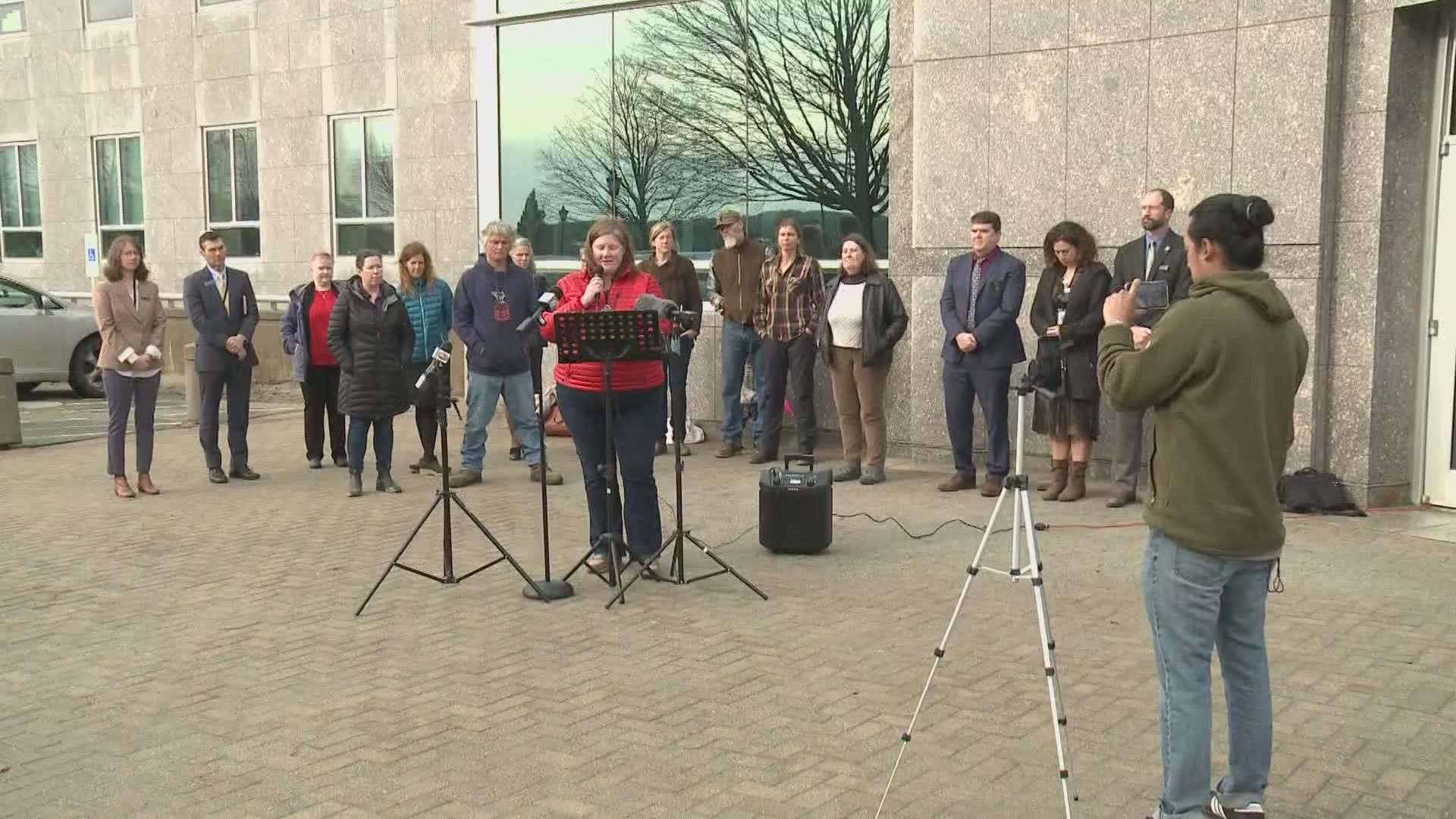AUGUSTA, Maine — For decades, sludge containing "forever chemicals" known as PFAS were spread on farms across the state as fertilizer. From there, those chemicals only continued to spread, seeping into the soil and groundwater. The severity of the situation is now coming to light as more and more farmers test soil only to high levels of PFAS.
This concern has brought together several farmers, nonprofit leaders, and local representatives, who gathered in front of the state house Wednesday, hoping to gain support of a new proposed bill known as LD 1911. If passed, the bill would ban the spreading of PFAS contaminated sludge on Maine land for good.
One of the farmers who shared his story Wednesday was Ken Lamson. He, along with his wife, Adrienne Lee, own New Beat Farm in Knox. Earlier this month, they learned sludge was once spread on parts of the 94-acre farm they've owned for more than 10 years.
"Since our land was not passed down to us, like many young farmers here in Maine, we did not have clear records of the history of our own fields and how they were managed before us," Lee said.
Lamson and Lee grow organic vegetables and hay for animals on their farm. Now, they're struggling to adjust to a harsh new reality, with so many unknowns still lingering.
"We pulled our crops off the market and started drinking bottled water, and even refrain from giving baths to our 19-month-old because we were afraid we wouldn't be able to keep her from drinking the tub water," Lee said.
Much of their land is now considered unusable. These "forever chemicals" are linked to a number of health problems and diseases, including cancer.
"Now this might be land that I couldn't sell even if I wanted to," Lamson said.
Lamson and Lee have been forced to adapt, working to find other ways to make money on their farm, while their lives are in limbo.
"We have only a couple fields that we know that we can potentially grow on," Lamson said.
Their primary fields can't be used to grow crops at this time. As of right now, one of their only options is growing flowers in those fields. Another alternative they're looking into is renting out another field to grow their crops.
Maine Farmland Trust and the Maine Organic Farmers and Gardeners Association are two nonprofits working to help improve the financial burden these farmers are facing.
"MFT and MOFGA are working together to launch a fund to support farmers that will be backstopped by state funds, Amy Fisher, president and CEO of Maine Farmland Trust, said. "What we're seeing is that farmers are losing anywhere between $2,000 a week and $14,000 a week."
This year alone, Lamson said, they'll likely lose tens of thousands of dollars.
Nell Finnigan, owner of Ironwood Farm in Albion, also spoke at the event. She said her life has completely changed since learning their land was contaminated.
"We've been thrown into a tailspin, a torturous limbo," Finnigan said. "My family, including my 4-year-old son, have industrial levels of PFAS chemicals in our bodies, the health consequences of which no one can really tell us beyond. It is certainly bad news."
Finnigan's bottom line: "They say no one knew better back then, but we certainly know better now."
The bill is still in committee but it is expected to be voted on in the coming months.

